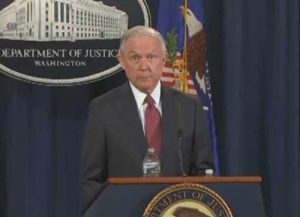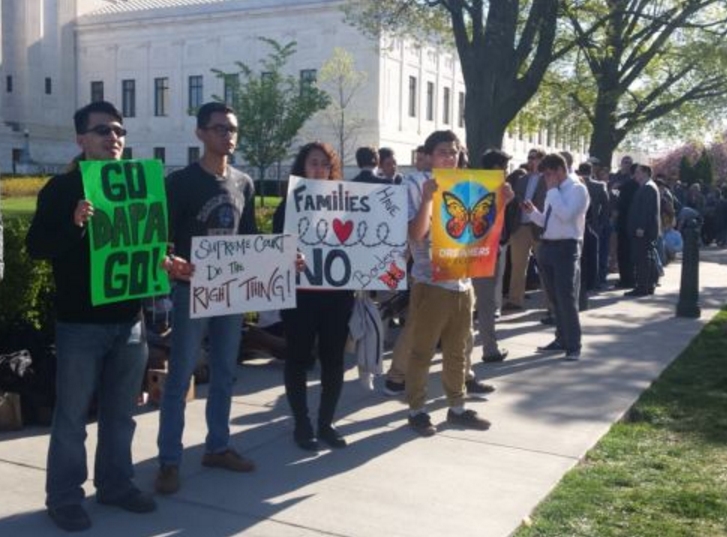
U.S. President Donald Trump’s administration moved Tuesday to end a program that shielded 800,000 young undocumented immigrants from deportation, but gave Congress six months to act if it wants to continue to allow them to remain in the United States years after their parents illegally brought them into the country.
Trump approved the decision but sent Attorney General Jeff Sessions before cameras to announce the controversial policy change. Sessions ended President Barack Obama’s five-year-old executive order that created the Deferred Action for Childhood Arrivals program with a terse statement: “DACA is being rescinded.”
The program allowed young people, who typically entered the country when they were six years old, mostly from Mexico and Central American nations, to work and study in the U.S. and serve in its military.
“We cannot admit everyone who wants to come here,” said Sessions. “All cannot be accepted.” He added that limiting immigration “means we are properly enforcing our laws.”
The undocumented immigrants, collectively known as Dreamers, have mostly known the U.S. as their home, but could, starting early next March, be deported to their home countries unless Congress acts legislatively to block their removal.
“Congress, get ready to do your job – DACA,” Trump had said in a Twitter comment before the official announcement, referring in an acronym to Obama’s program.
Sessions, an immigration hard-liner who had pressed Trump to end the program, took no questions from reporters in announcing the end of protections against mass deportations.
Acting Homeland Security chief Elaine Duke said in a statement, “This administration’s decision to terminate DACA was not taken lightly. The Department of Justice has carefully evaluated the program’s constitutionality and determined it conflicts with our existing immigration laws.”
She added, “As a result of recent litigation, we were faced with two options: wind the program down in an orderly fashion that protects beneficiaries in the near-term while working with Congress to pass legislation; or allow the judiciary to potentially shut the program down completely and immediately. We chose the least disruptive option.”
Duke said that attorneys general in several states, including Texas, on the southern U.S. border with Mexico, had told Homeland Security officials that if Trump’s administration did not move to end Obama’s program by Tuesday, it would seek a court order to overturn the program [[https://www.voanews.com/a/justice-department-may-decide-fate-of-daca/3946100.html]]. Conservative lawmakers and some Republican officials have long contended that Obama’s order amounted to impermissible executive overreach.
The Homeland Security chief said that “no current beneficiaries” of the program would be affected before March 5, 2018, giving Congress a chance to act legislatively. DACA recipients whose permits expire before that date will be allowed to renew if they do by October 5. DHS officials said no other renewals would be acted on.
Duke said that Sessions had told her in a letter Monday that Obama had created the program “without proper statutory authority and with no established end-date, after Congress’ repeated rejection of proposed legislation that would have accomplished a similar result. Such an open-ended circumvention of immigration laws was an unconstitutional exercise of authority by the Executive Branch.”








